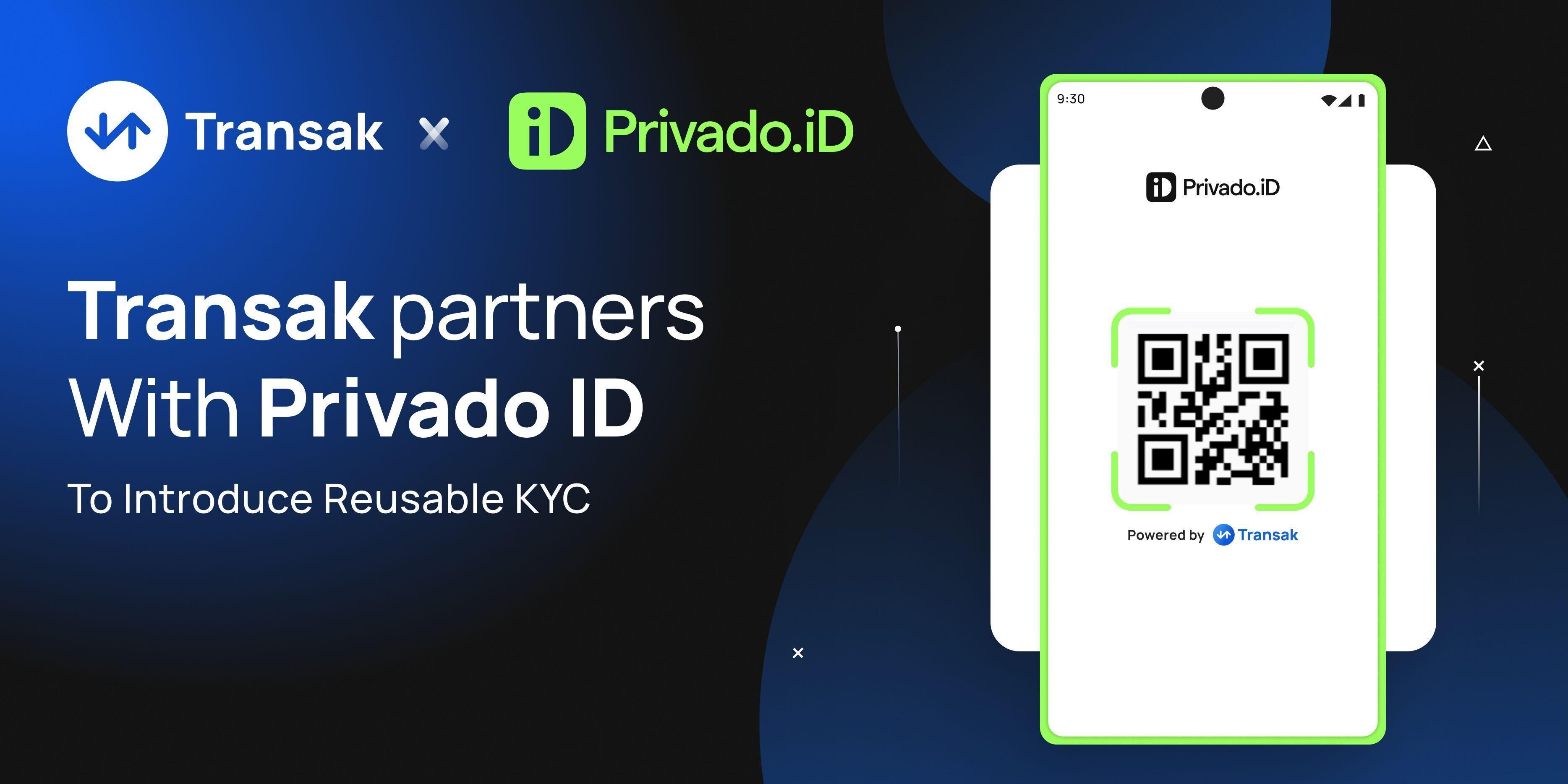As government bodies race towards regulating cryptocurrencies, a commonality is emerging in the implementation of laws — KYC verification.
Mandating KYC verification appears to be the starting point for many governmental organizations to regulate this newfound asset. But, old verification processes are not built for new disruptions.
Traditional KYC processes, while essential for preventing financial crimes like money laundering and fraud, have several inherent issues that pose significant challenges for decentralized applications (dApps) and blockchain projects.
They rely on centralized storage of sensitive user data, making them vulnerable to data breaches and identity theft. The 2019 data breach at First American Financial Corp., exposing nearly 900 million sensitive records, underscores this risk.
Further, a Thomson Reuters survey found that KYC compliance costs financial institutions an average of $60 million annually.
For decentralized applications (dApps) and blockchain projects, the challenge is even more pronounced. Ensuring regulatory compliance while preserving user privacy seems like a nearly impossible task. Users are often required to share excessive personal information, raising concerns about privacy and data misuse. The Facebook-Cambridge Analytica scandal, where Facebook user data was harvested without consent for political profiling, exemplifies this issue.
But what if there was a way to transform this cumbersome process into a seamless, secure, and user-friendly experience?
Introducing Reusable KYC by Transak in Partnership with Privado ID (formerly Polygon ID)
In addition to the problems mentioned above, imagine having to submit your sensitive KYC information repeatedly across various platforms, each time risking the exposure of your personal data. This frustrates users and poses serious security threats, hindering the broader adoption of decentralized technologies.
Enter the landmark partnership between Transak and Privado ID. Together, we are pioneering a novel approach to identity verification with the concept of "Reusable KYC". This innovative solution promises to streamline the KYC process, ensuring that users only need to verify their identity once with Transak, after which their verified data is stored as a decentralized token on Privado ID’s provisioned wallet and can be securely used across multiple platforms without compromising privacy, saving time and making user experience seamless.
Check out this video on how Reusable KYC will be a game changes to your web3 experience:
The partnership has three key objectives:
- Enhancing User Privacy: The integration leverages zero-knowledge proofs and verifiable credentials to ensure that user data remains private and secure. Users can prove their identity without exposing sensitive information.
- Streamlining Onboarding: By allowing users to complete the KYC process once and reuse their verified credentials across multiple platforms, the partnership eliminates the need for repetitive identity checks, making the onboarding process across Web3 smoother and more efficient.
- Compliance and Security: The solution addresses the regulatory requirements of various industries, ensuring that businesses can achieve compliance without compromising user privacy.
As a result, users enjoy a seamless and secure identity verification process while businesses get a robust KYC solution that simplifies compliance and risk management.
Understanding Reusable KYC
The concept of "Reusable KYC" is at the heart of the Transak and Privado ID partnership. This innovative approach leverages the strengths of Transak’s robust KYC processes and powerful distribution and Privado ID’s advanced decentralized identity framework to provide a seamless, secure, and efficient solution.
What is Reusable KYC?
Reusable KYC allows users to complete their KYC verification once with Transak, after which their verified credentials can be securely stored on Privado ID’s secured provisioned wallet and reused across multiple Web3 platforms.
How Does Reusable KYC Work?
Initial KYC Submission
Users complete their KYC verification with Transak, following a streamlined and efficient process enabled by the platform’s multi-level KYC solution.
Once verified, the user’s KYC data is securely and the user gets a decentralized ID token.
Generation of Decentralized Tokens
A decentralized token, representing the user’s verified KYC status, is generated by Transak and stored on Privado ID’s provisioned wallets.
This token uses zero-knowledge proofs, ensuring that users can prove their identity without exposing sensitive information.
One-Click KYC Sharing
Users can now navigate partner applications and utilize their verified credentials with a single click.
The token acts as a secure and tamper-proof proof of identity, allowing seamless access to various services without the need for repeated KYC checks.
Key Features of Reusable KYC
- Privacy: By leveraging zero-knowledge proofs and verifiable credentials, Reusable KYC ensures that users can verify their identity without revealing personal details. For instance, a user can prove they are over 18 without sharing their birthdate.
- Security: KYC data is stored on-chain, making it immutable and tamper-proof. This aligns with the principles of decentralization and ensures that user data remains secure.
- Interoperability: The verifiable credentials used in this system adhere to W3C standards, ensuring compatibility across various apps and protocols. This standardization allows users to reuse their credentials seamlessly across different services.
- Efficiency: Users only need to complete the KYC process once, significantly reducing the time and effort required for verification across multiple platforms.
Verifiable Credentials (VC) in Privado ID
Verifiable Credentials (VCs) are a W3C standard for tamper-proof, digitally verifiable credentials. They are designed to be a secure and privacy-preserving way to represent and share information about individuals, organizations, or objects.
In the context of Privado ID, VCs are a core component of its decentralized identity framework, enabling users to prove claims about themselves without revealing unnecessary personal data.
VCs are essentially tamper-proof digital credentials that attest to specific claims about an individual or entity. These claims can range from basic personal information like name and age to more complex attributes like professional qualifications or membership status.
Privado ID seamlessly integrates VCs and ZKPs to create a decentralized identity solution that prioritizes privacy and security. Here's how they work together:
- Issuance and Storage: Transak (a trusted issuer) creates and digitally signs VCs, which are then stored securely in the user's digital wallet.
- Presentation and Verification: When required, users can present their VCs to verifiers (with just a tap on the screen). ZKPs come into play here, allowing users to prove specific claims without disclosing the entire VC.
- Privacy-Preserving Verification: Verifiers can cryptographically validate the authenticity of the VC and the presented claims without accessing unnecessary personal data.
Proof of Uniqueness: Ensuring Fairness and Integrity in Decentralized Applications
One of the standout features of the Transak and Privado ID partnership is the introduction of "Proof of Uniqueness", a concept designed to address critical challenges in the decentralized ecosystem, particularly in scenarios like airdrops and Sybil attack prevention.
Proof of Uniqueness ensures that each user is uniquely verified, which is crucial for maintaining fairness and integrity across various decentralized applications (dApps).
In peer-to-peer ecosystems, Sybil attacks (an attack where a single entity creates multiple fake identities to gain an unfair advantage) are rampant and often adversely affect protocols.
Take airdrops, for example, where Sybil attacks are increasingly becoming harder to prevent. Without a robust mechanism to verify the uniqueness of each participant, projects risk distributing tokens unfairly, leading to inflated user counts and reduced reliance on the system.
The Proof of Uniqueness mechanism introduced by Transak and Privado ID provides a reliable way to verify that each user is a distinct individual. This is achieved through a combination of Transak’s KYC processes, Privado ID’s decentralized identity framework, and the implementation of Transak Account Soulbound Tokens (TASBTs).
How Proof of Uniqueness Works
1. Initial KYC Verification
Users undergo a comprehensive KYC verification process with Transak, where their identity is thoroughly checked and validated.
2. Generation and Storage of TASBTs
Upon successful KYC verification, a Transak Account Soulbound Token (TASBT) is minted and stored in the user's Privado ID wallet.
TASBTs are non-transferable tokens that serve as proof of a user’s verified identity within the Transak ecosystem.
3. Uniqueness Verification
The TASBT includes attributes that ensure the user’s identity is unique without exposing sensitive personal data.
When a user participates in activities like airdrops, the system checks the TASBT to confirm that the user is uniquely verified.
4. Preventing Sybil Attacks
Since each user can only possess one TASBT tied to their verified identity, it becomes virtually impossible for a single entity to create multiple fake identities.
This ensures that only genuinely unique users can participate in activities that require proof of uniqueness.

